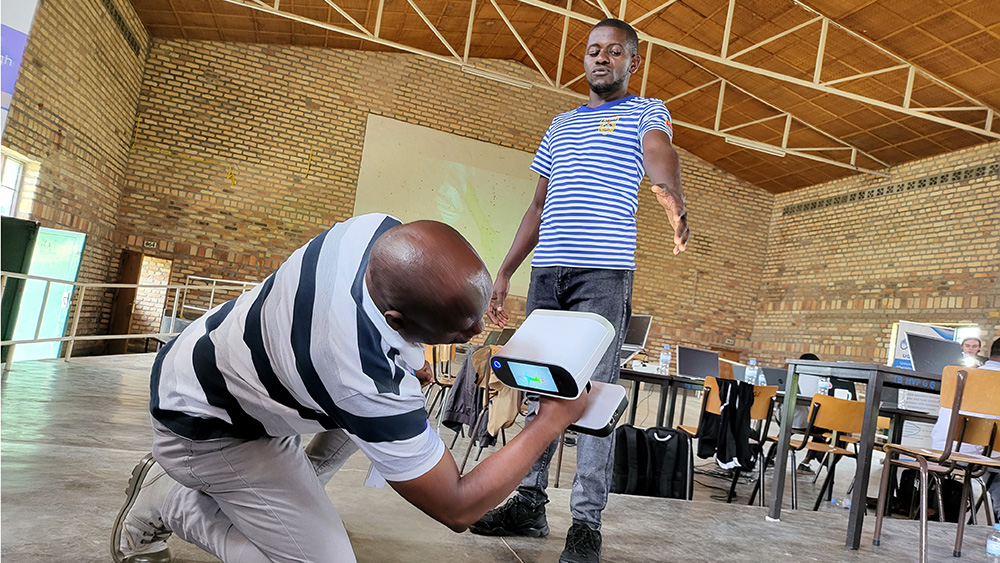Handicap International members learn patient-measuring skills using the wireless Artec Leo 3D scanner.
Artec 3D has begun working with Handicap International to manufacture custom prosthetic devices for beneficiaries in refugee camps and their host communities in Rwanda.
|
ADVERTISEMENT |
According to the United Nations, in Rwanda more than 51,000 people need prostheses. Many suffered loss of limbs during the 1994 genocide, and others were injured in road accidents or lost limbs due to disease.
Traditional prosthetics are made in bulk, rather than custom-fit to the individual. This often leads to pain and sores due to ill-fitting prosthetics. The need for a more customized solution is paramount.
By deploying Artec Leo 3D scanners, this partnership revolutionizes the process of measuring and creating tailored prostheses, orthoses, and supports. The 3D scanners capture measurements with pinpoint accuracy, minimizing invasiveness and making these services accessible, even in remote areas. For young patients, digital measurement is particularly beneficial because it allows devices to be 3D printed for continuous adjustments that accommodate growth.
…

Add new comment